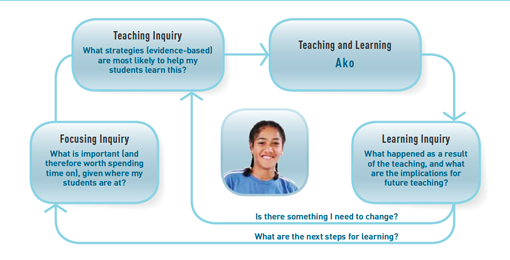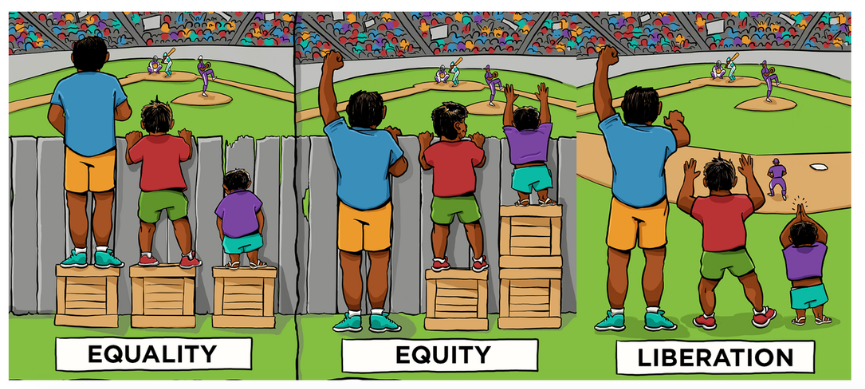 |
| Source: https://commons.wikimedia.org/wiki/File:Schurz_Conspirators.jpg |
We were there to talk about how we might get back to building collaboration across the secondary school network in Christchurch. This was something organised by Grow Waitaha that appeared on our 'landscape' in 2016/2017 and was, after its brief flourish, killed stone dead. We used words like collaborate, innovate, improve, as if we were a group of third world conspirators plotting the downfall of the world as we know it. Indeed you could be forgiven for thinking that using the word 'innovative' in education at the moment feels a little like 'talking dirty'. Such is the climate it would seem is being created by our media. Why research an issue in depth when you can make superficial sensational claims that will satisfy editors' demands for yet more click bait? I guess we shouldn't be too harsh on our reporters. Maybe what we are seeing is their initial responses to the disruptive influences of technology. Media owners seem intent on reducing reporter numbers in order to cut costs and drag in the advertising dollar. But that's another story.
But here's the point: this is about our children, about their future (and ours), and superficial clickbait will NOT do.
If I use the word 'innovate' I am, it would seem, likely to be labelled as 'experimental'. If I talk about 'collaboration' it seems that I am likely to be labelled as someone who wants all children to learn in huge groups taught by several teachers in an out of control environment where mob rule is the norm. And of course that is the norm whenever a school is rebuilt, isn't it. Forgive me for cringing in the corner, won't you.
On the other hand, if I use the words 'school improvement' I am perhaps seen as being a moderate, nay conservative, educator who doesn't really intend to do more than tinker around the edges.
We all proclaim that we want better educational outcomes for our children. Well, helloooooo .. doing the same thing and expecting a different result is Einstein's definition of insanity. To get better educational outcomes things have to change. Who says that doing things the way we have for the past 150 years was the best anyway? Echoing the critics of change, show us your evidence that the past 150 years were 'best practice' and gave us the best outcomes we can hope for? It seems to me that it only ever worked for the privileged few, those of European descent and of middle class background.
All schools need to innovate, all schools need to be empowered to have the courage to innovate, to try new things. And most (if not all) schools have built into their structures and processes the innovative mechanisms that drive that improvement. It's just that some are taking bigger steps than others at any given point in time.
I had the privilege of sitting in on the mid year report back of members of our staff team from their Professional Learning Groups, as they fed back to colleagues the results of their inquiries so far this year. What I saw was 'gobsmackingly good', it was exciting. No one thing that I saw represented a quantum leap in change, each was a small incremental change in teaching practice. But here's the thing: small incremental change for each individual teacher represents large change for a kura.
For those who don't know (cue: take note, Media friends) Teaching as Inquiry is our key improvement process, our key way to generate teacher learning and better outcomes for learners. It is recognised as perhaps the best way to help teachers to learn, to up-skill, to better meet the individual needs of the learners they interact with daily. I could go on, but you get the idea. For those who don't know (yes, media .. this one is for you) the process looks like this:

I saw teachers developing better ways to empower personalised learning. I saw teachers digging in to data to learn more about their learners. I saw teachers enhancing student mana by empowering them to become experts for their peers. I saw innovative use of technology to help students to read, write, and create, more effectively. I saw teachers looking at how they can make more effective use of simple one on one face to face conversations to better engage students.
This is innovation. This is empowering. This is exciting. This is what leads to better outcomes for learners. It does also underpin more significant kura wide change. It empowers us as teachers to try new things, to be prepared to take risks, and risk taking is important because without it we get no change.
And all of those things I have described are informing our whole school evolution, whether it be Chromebooks and digital learning (Manaiakalani), curriculum change, or pastoral systems. Our school wide improvement data continues to be impressive. Take this writing data, tracked across a three year period form the beginning of 2016 to the beginning of 2019.
If by doing all of this we are, suddenly. an experimental school, then so be it.
And when undertaking inquiry, we all acknowledge that sometimes the hunches that teachers have are wrong, or the strategies they try out don't work. And do you know what? That's ok. Because learning that something doesn't work is just as useful as learning that it does. And it's better than doing nothing.
The media seems intent on beating teachers and schools over the head when they try new things. Schools come at this driven by the moral imperative to do better for our children. I am frankly not seeing much of that in the media these days. The climate being created by this approach will only serve to drive innovation out of the system. Or where it does occur, it will seem more like some sort of guerrilla activity, some clandestine operation undertaken in the dark of the night.
And this must be much like the innovators who began Manaiakalani must have felt in their early days. Maybe they didn't, or maybe the media had a different approach ten years ago. But thank goodness those innovators did. The outcomes for our rangatahi are amazing. We accelerate learning in writing by (on average) twice national averages. We accelerate improvement in reading and maths by (on average) one and a half times national averages.
We are out to liberate our young people from the tyranny of 150 years of educational practice that has served too many of them poorly. And that is NOT a plea to 'throw the baby out with the bath water'. There is much in what we have done that is good. However it is no longer enough. Here we go with this same image:

THAT is creativity. For our kura THAT is 'creative excellence' in action with teachers. THAT is the result of innovation. THAT is the result of moral courage. THAT is the result of some professional 'dirty talk'. If 'talking dirty' in professional terms is what it takes to give our rangatahi the better future they need and deserve, pass me the swear jar. I'm in!!!
Another compelling argument backed up with research and evidence to support.
ReplyDeleteThank you for such a positive, dare I say adventurous, attitude. I fear media negativity is to blame for the all too many critical conversations I hear about noisy, big barns and lack of educational basics. The critics never seem to want to include someone who is actually currently teaching in a modern school!
ReplyDeleteFirstly, congratulations on your amazing e-asTTle writing data Robin, testament to the wonderful collaboration and innovation at HHS! And secondly, thank you once again for talking common sense and backing up your thoughts with evidence. If we are to accelerate learning outcomes for our Uru Mānuka students, we have to collaborate, innovate and transform our teaching practice. 'Tinkering' around the edges is simply not good enough, we have to be transformational! Keep espousing your thoughts and beliefs, there is a saying, if you don't believe in something, you will fall for everything, sadly, I think this has been the case for a number of years in our education system, keep up that 'dirty talk' Robin!
ReplyDeleteRobin keep climbing on your soap box and keep the narratives coming as all too often the media only seek to 'report' with a very bias view. We see and feel the change and it is so positive for not only our rangatahi but for Aotearoa's future. Kia kaha
ReplyDelete